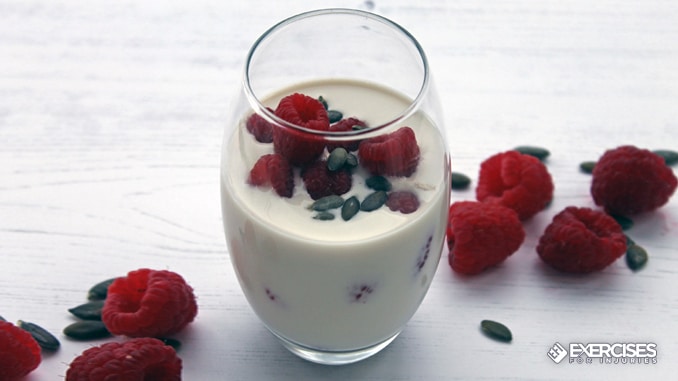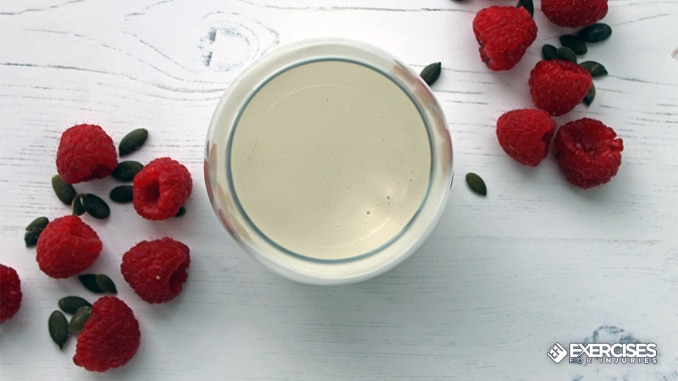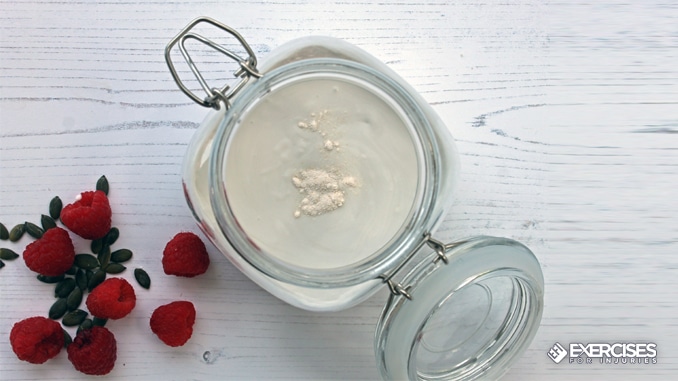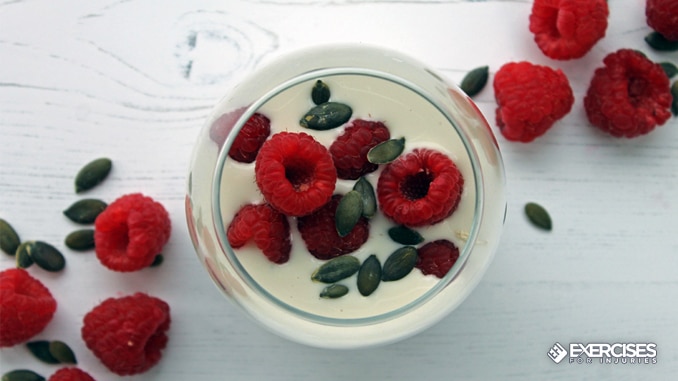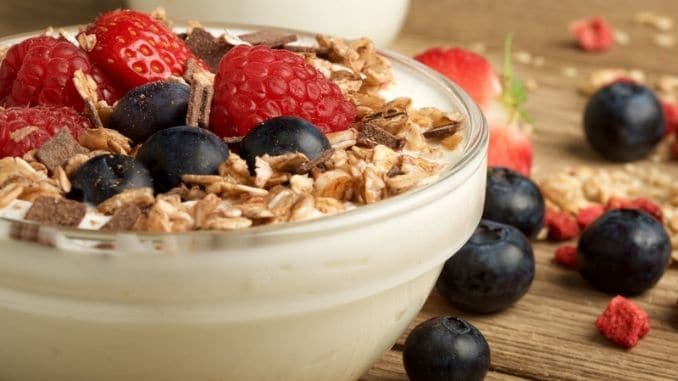
Used in moderation, good-quality yogurt can play an important role in a healthy and balanced diet. A product of fermentation, traditional yogurt is rich in probiotics ― gut-friendly bacteria that can support a healthy and happy digestive system.
Health Benefits of Yogurt
Alongside a super dose of probiotics, yogurt can also provide a healthy, balanced serving of protein, fats, and carbohydrates. However, all yogurt is not created equal. With a reliance on pasteurization, preservatives and added sugars, store-bought yogurt is fast becoming something to avoid as opposed to a healthy source of nourishment.
Aside from the more processed nature of many store-bought yogurts, recent years have also seen a dramatic rise in cases of diagnosed dairy allergy and lactose intolerance, resulting in the need for healthy nondairy alternatives.
Whether you consume dairy or avoid it for health reasons, there is an abundance of alternative yogurt products available ― from store-bought to homemade, you can still reap the benefits of a healthy yogurt in your diet. This list gives you the lowdown on what to look for and what to avoid when selecting the best yogurt to suit your own diet.
Raw Dairy Yogurt
The best, most nutrient-dense variety of dairy yogurt available comes from grass-fed cows or goats. To receive the optimal benefits, the yogurt should be raw and not pasteurized as the pasteurization process used in standard store-bought yogurt reduces the nutrient profile of the yogurt drastically. If raw yogurt is not an option or readily available, the next best choice would be to consume organic yogurt from grass-fed animals.
Pros: A good quality raw, yogurt from grass-fed animals is not only an abundant source of tummy loving probiotics but is also rich in protein, essential fatty acids and omega 3s. The probiotic strains in a good-quality yogurt not only support a healthy digestive system but have also been shown to lower cholesterol levels. Rich in both calcium and vitamin D, yogurt is also excellent for bone health and preventing osteoporosis.
Cons: Raw yogurt is not always readily available or accessible. Also, some have concerns about the safety of consuming unpasteurized, raw dairy products. If you are considering consuming raw dairy, it is worthwhile reviewing the cases for and against unpasteurized dairy to ensure it is appropriate for your health needs.
Uses: As a snack on its own, served with fresh berries or granola, added to a breakfast smoothie.
Soy Yogurt
For a long time, soy was the favored dairy-free alternative for many. Made from soybeans, soy can be a healthy choice for vegetarians, vegans and those looking to avoid dairy. Packed with healthy fats, plant-based protein, vitamins and minerals, soy provides a readily available alternative to dairy-based yogurt.
Pros: Soy has been demonstrated to lower bad cholesterol levels and reduce the risk of cardiovascular disease. As a low-glycemic index food, it has also been shown to help balance blood sugar levels. A rich source of calcium, soy can help to improve bone density, reducing the risk of osteoporosis.
Cons: Many store-bought, soy-based yogurt contains unhealthy added sweeteners and preservatives. As a phytoestrogen, soy can mimic the hormone estrogen. Some reports suggest that a diet high in soy could potentially have a disruptive effect on female hormones and is best used in moderation.
Uses: Layered over granola or breakfast cereal, served with fresh fruit, added to plant-based protein smoothies or made into frozen yogurt.
Coconut Milk Yogurt
An increasingly popular and widely available dairy-free option, coconut milk yogurt has been creating a buzz in vegan, vegetarian and paleo circles. Rich in healthy fats, coconut milk yogurt provides a healthy dose of probiotics as well as being an abundant source of minerals.
Pros: Coconut milk yogurt is rich, creamy and indulgent. A plentiful source of vitamins, minerals, and fiber, coconut milk yogurt is also packed with antioxidants. A great source of healthy fats, coconut milk yogurt contains medium-chain triglycerides, which can help to support weight loss.
Cons: Although a good source of healthy fats that can support weight loss, coconut milk is high in calories so should be consumed in moderation for the optimal benefits. Also worth noting is that some brands will add unhealthy thickeners, preservatives, and sweeteners to their yogurt, so try finding one that uses coconut milk along with the live cultures.
Uses: Excellent when added to smoothies, alongside breakfast cereals, used in place of sour cream to create savory dips or toppings or blended into salad dressings
Almond Milk Yogurt
A good source of plant-based protein and healthy fats, almond milk yogurt is a relatively new player on the dairy-free scene. Naturally sweet, almond milk yogurt provides gut-friendly probiotics along with calcium and vitamin D, which is crucial for bone health.
Pros: A pleasant naturally sweet taste, almond milk yogurt is a great alternative for vegans and vegetarians. Rich in antioxidants, fiber, vitamins and healthy fats, almond milk yogurt benefits from a lower calorie count than other yogurts, making them suitable for those looking to lose weight.
Cons: As with all nondairy alternatives, look out for added fillers and sweeteners.
Uses: For topping granola, added to smoothies, to serve alongside desserts in place of cream or for making frozen yogurt or ice cream.
Many store-bought, dairy-free yogurt is filled with added sugars, preservatives and thickeners, so why not try making your own?
Homemade Yogurt Also a Good Option
If you fancy experimenting with your own yogurt making, coconut yogurt is a terrific place to start. No fancy equipment is required ― you only need a plastic spoon, sterilized sealable jar, good-quality probiotic and warm environment to allow the yogurt to develop.
For this recipe, a good-quality ― preferably organic ― coconut cream is required for its thick and creamy consistency. Coconut milk is also a worthy substitute. However, the result will be a thinner, runnier yogurt.
The recipe is sweetened with honey to balance the tang of the yogurt. However, you can substitute this with maple syrup if preferred or omit the sweetener altogether.
To transform the coconut cream into a cultured yogurt, two high-quality vegan probiotic capsules are required. It is important to select a capsule-based probiotic so that you can open and pour into the coconut cream.
To prepare the yogurt, add 1.5 cups of coconut cream to a large, sterilized Mason jar. Add 2 teaspoons of honey to the yogurt and stir well to combine with a clean spoon. Empty the contents of the probiotic capsules into the yogurt and use a clean, plastic spoon to mix well until fully combined. Seal the jar lid and store in a warm environment for 24 hours. The ideal temperature required for the yogurt to develop is around 100 to 110 degrees Fahrenheit. If you live in a warm environment, this may develop on its own. Otherwise, the best way to do it is to place the sealed jar in an empty oven with the door closed and the light setting on only. This should create the appropriate temperature for the cream to develop into a cultured yogurt.
After a minimum of 24 hours, transfer the yogurt to the refrigerator to chill for a minimum of two to three hours before serving. Serve as it is or with fresh berries, healthy granola or a sprinkling of your favorite seeds.
For your guide to the best foods for your body, check out The Best Foods that Rapidly Slim & Heal in 7 Days, here!

